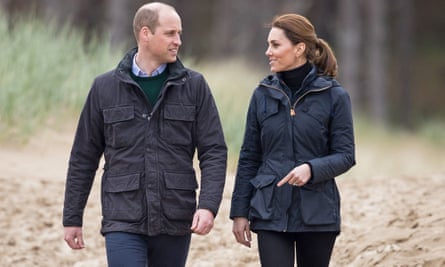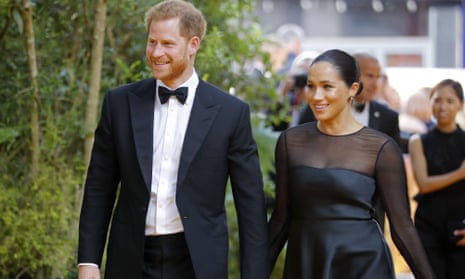Gope Walker has regularly flown to meet his clients in countries as far apart as Ireland and Argentina. But in 2020 his feet will stay firmly on the ground.
Walker, who runs an IT consultancy in Oxford, has pledged to make next year flight free. Instead, he will take advantage of increasingly sophisticated software to hold virtual meetings or will travel within Europe by train. “I just thought, this is something I can do. We should all be asking ‘do I really need to go there?’ From a business point of view, I honestly can’t see why I do,” he said.
Next week, Alexandra Jellicoe will return to the UK from a family holiday in Annecy in the French Alps. She and her three children under seven will take the train to Paris, and from there to London before the final leg to her home near Bath.
The journey will take about 10 hours, but “trains are very child-friendly, you meet other people and you get to see more,” she said. “And if you’re concerned about the environment, one of the biggest things you can do personally is not fly.”
The damage caused to the environment by carbon dioxide emitted from aircraft – and the dilemma facing those who want to reduce their carbon footprint but also want to travel – was highlighted last week by a row over the Duke and Duchess of Sussex using private jets. The couple, who have spoken out about the climate crisis – even publicly saying they will only have two children because of their concerns for the planet – were accused of hypocrisy.
Elton John, who invited Harry, Meghan and baby Archie to stay at his home in the south of France, defended booking a 12-seat Cessna, citing the need for security and privacy. But the journey was estimated to have emitted seven times more CO2 per person than a commercial flight.
Piling on the Sussexes’ discomfort was the emergence at the end of the week of pictures of his brother, William, disembarking with his wife and children from a low-cost commercial flight from Norwich to Aberdeen. Budget airlines are more carbon efficient per person because their flights tend to be fully booked.

John said he ensured the Sussexes’ flight was carbon neutral by making an “appropriate contribution” to Carbon Footprint, a consultancy that helps reduce and offset emissions.
The company declined to comment on Harry and Meghan’s trip but told the Observer: “Carbon offsetting is an option for mitigating the effects of carbon impact.”
Not everyone agrees. “The term is misleading – it implies you can equalise the emissions and fly carbon neutral,” said Roger Tyers, a research fellow at the University of Southampton. “Basically, you emit carbon today and even the best offset won’t repay that debt for many years, by which time a lot more damage has been done.”
According to the UN, offsets “risk giving the dangerous illusion of a ‘fix’ that will allow our billowing emissions to just continue to grow”. While offsetting can be a useful temporary measure, “it is not a silver bullet and the danger is that it can lead to complacency,” said Niklas Hagelberg, a UN climate specialist.
The problem is compounded by carbon calculators producing varying data on the amount of CO2 emitted by any particular journey, and by disagreement over the effectiveness of hundreds of schemes – such as reforesting, hydroelectrics and solar energy – into which money is invested.
In any case, a recent survey by the BBC found that only half the world’s biggest airlines offer carbon offsetting to their customers – and only 1% of flyers choose to pay the extra. Neither British Airways, the UK’s national carrier, nor American Airlines, the world’s biggest, run schemes.
Airlines must report their annual CO2 emissions, and the industry is aiming to halve its carbon footprint by 2050 by reducing emissions elsewhere. With nearly 4.4 billion passengers taking to the air last year and global aviation CO2 emissions at almost 900m tonnes, the challenge is immense.
Nevertheless, consumer consciousness is rising, helped by the Extinction Rebellion campaign, the environmental activist Greta Thunberg’s zero-emission boat journey across the Atlantic, and the growing phenomenon of flygskam – the Swedish word for flight-shaming.
The latter is credited with an 8% drop in the number of passengers flying from Swedish airports between January and April this year. Meanwhile, France is introducing an “eco-tax” of up to €18 on flights from its airports, and the Dutch carrier KLM has launched a “fly responsibly” campaign, even suggesting train journeys instead of short-haul flights.
In the UK – where a third runway is planned for Heathrow despite the airport already being the biggest single source of CO2 emissions in the country – environmental activists are urging people to commit to a flight-free 2020.
“We accept air travel is part of society and we’re not saying never fly again. We’re trying to start a conversation about how to reduce our carbon footprint,” said Anna Hughes of Flight Free UK. About 3,000 people have already signed up – including Walker and Jellicoe – and the campaign hopes to enlist 100,000 by the start of next year.
“People need to be informed about the carbon impact of their journeys. The problem with carbon offsetting is that there’s no such thing as a carbon-neutral flight however many trees are planted – and it gives people a licence to continue behaving in the same way,” said Hughes.

According to Tim Johnson of the Aviation Environment Federation, “public interest is unparalleled. The more people are encouraged to look at their lifestyles [in relation to the environment], the more the aviation component of our activities stands out. When you do the sums, you can eat less red meat and turn the thermostat down a degree or so, but ultimately all those efforts will be wiped out by taking a flight.”
He suggested firstly looking at alternative, more sustainable modes of travel, secondly considering whether you are travelling efficiently (“most calculators suggest flying economy has half the carbon impact of business or first class”), and finally, if you really have to fly, investigate the most effective way to offset.
Attitudes were changing, he said. “Look at the car industry – the accelerated demand for electric cars, which manufacturers can’t keep up with – or the plastics debate and how people have changed how they shop. But it’s certainly true that one of the worst things you can do as a carbon-conscious citizen is take a flight.”
Walker, who pledged to be flight free in 2020 after seeing an item on television, said he tried not to be judgmental about flying but wanted to encourage others to follow suit. “If I can get 5% of my 500 mates on Facebook to say they’re not going to binge-fly any more, that’s enough to make a difference. Little things should be lauded.”
